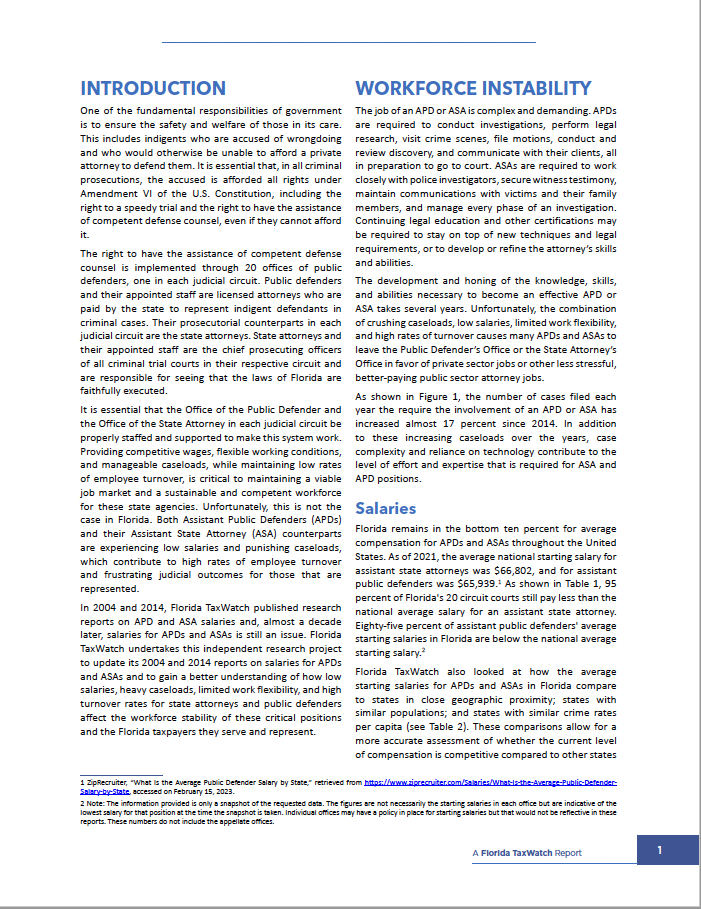Why Taxpayers Should Care about Workforce Instability with Florida’s Public Defenders and State Attorneys

The right to have the assistance of competent defense counsel is implemented through 20 offices of public defenders, one in each judicial circuit. Public defenders and their appointed staff are licensed attorneys who are paid by the state to represent indigent defendants in criminal cases. Their prosecutorial counterparts in each judicial circuit are the state attorneys. State attorneys and their appointed staff are the chief prosecuting officers of all criminal trial courts in their respective circuit and are responsible for seeing that the laws of Florida are faithfully executed. It is essential that the Office of the Public Defender and the Office of the State Attorney in each judicial circuit be properly staffed and supported to make this system work. Providing competitive wages, flexible working conditions, and manageable caseloads, while maintaining low rates of employee turnover, is critical to maintaining a viable job market and a sustainable and competent workforce for these state agencies. Unfortunately, this is not the case in Florida. Both Assistant Public Defenders (APDs) and their Assistant State Attorney (ASA) counterparts are experiencing low salaries and punishing caseloads, which contribute to high rates of employee turnover and frustrating judicial outcomes for those that are represented. In 2004 and 2014, Florida TaxWatch published research reports on APD and ASA salaries and, almost a decade later, salaries for APDs and ASAs is still an issue. Florida TaxWatch undertakes this independent research project to update its 2004 and 2014 reports on salaries for APDs and ASAs and to gain a better understanding of how low salaries, heavy caseloads, limited work flexibility, and high turnover rates for state attorneys and public defenders affect the workforce stability of these critical positions and the Florida taxpayers they serve and represent.